How we eat breakfast in the UK has evolved in all sorts of different ways from the days when a Great British fry-up was an every- day staple. From croissants to heart-healthy spreads, breakfast biscuits, breakfast drinks and beyond, there’s a bewildering array of wake-up food for consumers to choose from.
“Consumers’ breakfast habits are changing, with a wider variety of foods available, providing enticement away from the traditional breakfast of cereal/porridge and toast,” confirms Amy Price, senior food and drinks analyst at Mintel.
“Many people take pleasure in trying a variety of foods when eating breakfast, with the rise of portable options such as breakfast biscuits creating strong competition in the market.”
In the first instance this creates plenty of scope for c-stores to serve breakfast-hunting shoppers with ambient products for an occasion that cuts across lots of core categories.
Plus, as retailers have discovered, harried consumers that just haven’t got time to make breakfast themselves in the morning are a massive market.
Mintel reports that more than half of UK adults eat breakfast out of home, with 10% doing so at least four times a week. The most likely people to grab breakfast on the run are 25- to 34-year-old men living in a city who work full-time [women are more likely to eat it at home]. Unsurprisingly, they’ll buy something on the way to work/college, before scoffing it at their desks or in an early lecture.
“Today, the breakfast category is all about health and convenience,” asserts John Kinney, retail director at Today’s Group.
“The days of families enjoying a ‘round the breakfast table’ eating experience have diminished with more and more consumers eating breakfast ‘on the go’ or not at all. In fact, 26% of Britons skip breakfast at least four times a week.”
And while once upon a time skipping breakfast (or maybe just having a coffee and a cigarette) was seen as a way to lose weight, current government healthy eating messages state that going hungry in the morning is a fast-track to a blood sugar crash, and can actually lead to piling on the pounds.
This gives retailers opportunity to step in and offer early-morning solutions for hungry commuters on the way to work (or off on the school run), especially around food to go.
It’s an area so important to Justin Taylor from Spar Winford in Somerset that he’s willing to lose a bit of sleep over it. In fact, last December he decided to set his alarm half-an-hour earlier in order to capture the pre-dawn market.
“We used to open the store at 7am and now we open at 6.30am to make the most of breakfast to go,” he explains.
“It’s really important to us from the point of view that it offers a point of difference to anything else locally. To be honest, no one else is open at half six, so we catch a huge amount of people going to work. It’s mainly tradespeople coming in to buy a paper, get their ciggies and have some breakfast. Because of that it’s a critically important part of the day for us.
“People can buy cigarettes and a paper in a number of different places - but we’re the only shop around that does a proper hot breakfast offering.”
As you might expect, Justin’s food-to-go offer focuses on an assortment of hot baps, mostly involving sausage and bacon variations, as well as a selection of pastries and slices.
“I’m not sure if I’d want one of those at seven in the morning,” he says, “but if people come in for them that’s more than fine with me!”
This core breakfast offer of hot early morning meat is echoed at Kavanagh’s Budgens of Eton, Berkshire, where Parimal Valamiya serves up a selection of baps as the sun starts to come up over this affluent part of the country.
Parimal says that the store’s location is the perfect place to capitalise on the morning hot breakfast market. “Breakfast is vital to us because our location is just on the high street where there are no other supermarkets or convenience stores around,” he says.
“We’re in an area where there are lots of historic buildings nearby that need lots of maintenance - which brings in the builders. Also, we’ve got two nurseries locally which pulls in a lot of parents dropping their kids off.”
Plus, of course, Eton is world-famous for its iconic school, and every weekday Parimal says that 600 staff and 1,300 future David Camerons converge on the area - which adds up to one big breakfast queue.
“From the early morning we’ve got long queues for people who want breakfast,” he says. “The breakfast-style bars do well. We’ve got a big unit of Eat Natural bars in front of the counter; people get them with fruit or a drink to take away, especially the teachers. It’s the baps that do the best, though, such as sausage and bacon.”
According to Country Choice marketing manager Emma Hunt, promotions can make breakfast food-to-go sales go even further. “Consumers are keen to see breakfast deals, such as a bacon bap or croissant plus hot drinks for a fixed price. Like much of the grocery sector our retailers have enjoyed considerable success with ‘round pound’ deals which simplify and speed up the transaction process - an important consideration for consumers who want to be in and out of a store in a hurry.”
Since food to go still seems reliant on hot baps, you could be forgiven for believing that not much has changed in the category over the past decade. But then you’d be forgetting one of the UK’s seemingly unstoppable food-to-go superstars: coffee.
One of the massive changes in the breakfast market over the past 10 years has been the way many Britons have swapped morning tea for a to-go skinny latte or cappuccino from one of the many American-style high street coffee chains.
And, increasingly, c-store retailers are getting in on the act by having a branded premium coffee unit in-store to give shoppers a superior cup of Java to their usual instant. Yet despite this, it’s still an underdeveloped area in convenience. According to HIM Research & Consulting, some 85% of breakfast-to-go shoppers still don’t buy a hot drink to accompany their eats.
Hunt claims that round pound pricing within a meal deal can be especially effective in encouraging consumers to pick up more than one item. “For example, a retailer might offer a meal deal incorporating a breakfast bap (rrp £1.89) and coffee (rrp £1.50) at a round pound price of £3. Cross-merchandising is another very effective tool, particularly in terms of breakfast bakery goods. Dual-siting on the bakery fixture as well as beside the coffee machine is an excellent way to drive sales across food to go and take-home.”
Parimal’s coffee machine has been a big hit with breakfast consumers. “We have a Costa machine and it’s very successful for us at breakfast,” says Parimal. “I sell 100 cups of Costa coffee alone from just one small unit in the shop. It’s a solution that allows us to sell hot beverages straight off in the morning.”
Parimal says that the brand recognition factor is extremely important for consumers who are clued up about coffee.
“It sells well because it’s a brand name,” he says. “I noticed that when you’ve got a choice of two machines people go for the Costa option. Again, that’s down to the brand.”
Justin is another big Costa fan - saying that it makes a “big difference” to the sales of hot drinks at breakfast.
“I don’t know how they’ve done it, but there isn’t another brand like it on the coffee front. Even the likes of Starbucks couldn’t touch what we’re doing in the store with Costa,” he says.
“I think that, apart from anything else, you know exactly what you’re going to get from it. The units they use are very good; they’re very consistent and reliable so you know that if you pull into a place that’s got Costa in Devon it’s going to be the same quality as you’d find somewhere in North Yorkshire. Maybe it won’t be the very best cup of coffee you’ve ever had (although, don’t get me wrong, it is a great cup of coffee), but it is very consistent.”
For some retailers coffee and promotions go together as naturally as bacon and eggs, and presenting an appealing offer can be a smart way to kick off caffeine sales and alert customers to the fact you’re going large with the black stuff.
In late 2015 Amardeep Singh from Today’s Local in Reading offered free croissants for people who bought a hot drink from the store’s new Tchibo machine for the first four weeks, which helped drive incremental sales.
This isn’t always possible with every brand in the category, though. Justin says that one of the only “slight downsides” to getting a Costa machine is that the big boys don’t want to damage their brand by offering any deals. “They don’t enter into promotions,” he says. “So you can offer a breakfast deal, but then the margin burn is all yours. Understandably, most retailers choose not to do that!”
Avtar Sidhu from Sukhi’s Simply Fresh and Post Office in Kenilworth, Warwickshire, believes there may be another sticking point; big brand coffee is becoming so ubiquitous that there might be something of a backlash happening. “These brands are everywhere now and I think you can get a bit of ‘brand apathy’. It’s great for some people, but we’re trying to offer something that little bit different. We offer bean-to-cup coffee and I think the quality is really good. We’ve had people come in and choose it rather than Costa.”
Whatever your choice of coffee most retailers agree that you have to have it to maintain a serious breakfast range. It’s also important to offer complementary products alongside your machine to boost basket spend - for example, Avtar says that he’s had success with flapjacks close to the coffee offer.
It’s a proactive approach endorsed by HIM, which says that ‘interrupting’ a customer’s trail around the store offers opportunities to make additional sales.
“Breakfast mission shoppers buy 1.9 items that they don’t intend to,” says Elyse Charvin, insight executive at HIM.
“To drive impulse purchase use targeted promotions and eye-catching displays. They can be the difference between a shopper passing by breakfast products without a glance and their autopilot being interrupted. Ensure offers are time of day and location relevant, particularly during weekends.”
Matching your offer to the day of the week is another way to increase breakfast food sales, especially around food to go. Justin notes that a Monday morning shopper dragging their heels on the way to work will have different needs to someone with the Friday feeling.
“It generally ramps up through the week,” he says. “Monday and Tuesday, though they are good days for breakfast, will be quieter, and by Thursday or Friday people are riding the crest of the wave to the weekend. This is where people say ‘I’ve had porridge for three days, but I’m going to treat myself to a breakfast bap because it’s the end of the week’.”
Shane Vaughan from Aryzta Food Solutions agrees. “A consumer on a Monday morning has a different need state to, say, a consumer on a Friday morning where the shackles are coming off a bit,” he says.
“You see people on a Monday going for something healthy because they’ve been naughty at the weekend. Then on a Friday it’s something more indulgent, such as a blueberry muffin.”
When consumers do have time to get breakfast at home (and Mintel reports that about 50% do on a regular basis), it tends to be cereals that they reach for. According to Mintel, more than 80% of people in the UK eat cereal, making box cereal a must-stock. Retailers also see its place as a signpost for the breakfast category: according to HIM research 79% see stocking cereals as ‘important’ to their store.
For c-store customers a pricemarked pack always goes down well. Says John Kinney from Today’s: “Highlighting attractive price points with pricemarks is important in the cereals category. However, the retailer must be supported with a good margin. Some manufacturers believe that independent retailers can sacrifice margin in one category by making it up in another. However, as margin becomes tighter across all product categories, this practice becomes more and more difficult to achieve.”
He adds: “The cereals category is always heavily promoted, which is clearly advantageous to consumers. However, what’s worked really well for our members is when manufacturers deliver more appealing products to retailers by cost-engineering packs or reducing case sizes to hit an appealing price point.”
Despite these price issues around cereals retailers seem to feel secure that the category won’t come under intense pressure from the multiples. HIM found just 14% of retailers believed sales in the category would be affected by big store competition.
Catch on to the commuter trade
When Jerry Tweney, store manager at Warner’s Budgens in Moreton-in-Marsh, Gloucestershire, saw how commuters were parking up near the store and then eating breakfast on the train, he realised there was an opportunity to cash in on the local early morning carriage trade.
“We now open early at about 7.30am with our Soho Coffee Shop which opened in September 2015,” he says.
“People are coming in and getting pastries and coffee to take on the train, and picking up lunch, too.”
Initially, the idea was to open a breakfast bar, along the lines of a salad bar, where shoppers could “take a plastic bowl and then choose your cereal and add milk, for a fixed price.” However, Jerry says that getting the right cereal in the right amounts proved difficult to source regularly.
Instead, the store has a four-tiered self-serve Country Choice pastry selection, served on slate, in a glass-fronted unit sited near the coffee area.
“The pastries have gone really well in the morning after a bit of a slow start to begin with,” he says.
“We do 12 different lines and people get a pastry, then a coffee, and they’re good to go and get the train into town.”
He points out that at weekends things slow down a bit on the to-go breakfast front, but the full English breakfast on offer at the Soho Coffee Shop keeps things ticking along nicely.
“We do it at £4.99 for a full English, which is very reasonably priced and we still make a decent margin,” he says.
“To be honest, you’d struggle to find something similar on the High Street around here for less than seven quid. It’s good, too, as it makes the store somewhere that people can come and meet up on a Saturday. They’ll come in and use the post office, have breakfast and go off and do their shopping together.”
Cereal to go
But it’s not just box cereals that are the big news in the channel. On-the-go cereal pots are the products that are really meeting their morning customers’ needs.
Kinney from Today’s notes that on-the-go breakfast options account for 19% of all breakfast occasions and 43% of spending on breakfast lines [Nielsen]. Meanwhile, on-the-go porridge pots are particularly popular and have tapped into the booming hot cereals subcategory, which grew 52% between 2008 and 2012, according to Mintel.
All the retailers C-Store spoke to praised on-the-go pots for delivering great sales while taking up a relatively small amount of space on the shelves. “They’ve certainly grown in popularity,” says Avtar.
“For customers, the trend is that time is precious, even if it means opening up a pot and banging a bit of milk in there and consuming away. They perceive it as a quick fix and a useful time-saving option. It’s a good idea: they’re convenient pots, with the spoon already in there, and you just have to add water or milk and then you’re good to go.”
Avtar has been tracking the category ever since porridge pots first emerged on the market. The latest brand to catch his eye for the store has been Wolfy’s, which offers premium pots featuring upmarket flavours such as pear and ginger.
Kinney from Today’s says that the group is running with convenience products such as breakfast biscuits and on-the-go pots to create a new kind of in-store breakfast offer. “We are responding [to the trend] by investigating opportunities to introduce ‘breakfast stations’ in our symbol group stores,” he says.
“The proposal will consider offering breakfast bars, biscuits and on-the-go pots, together with tea or coffee. The space can then be flexed to offer appropriate product lines to capture alternative meal occasions during the day - for example, sandwiches, sweet and savoury snacks at lunchtime and ‘something for tonight’ meal ideas at the end of the day.”
While white-van man (or woman) is intent on grabbing a hot bap and coffee there’s another market sector in breakfast whose needs must be met. Anyone who’s been following the news over the past year knows that health is becoming a huge driver at breakfast.
“Healthy breakfast options should always be stocked in convenience stores,” says HIM’s Charvin. “Some 40% of shoppers told us that they always consider their health when making food and drink choices.”
It’s a point of view that particularly chimes with what Avtar is achieving at his store. “We’re in a relatively affluent area and you have to play to your local demographic,” he says.
“For us that means offering healthy options. Today consumer awareness is driven by lots of different channels - from print media to social media. This means people are more aware of what they’re eating and are a lot more clued-up. I think as retailers we need to understand there’s a trend towards health and reflect this in what we offer on the shelves.”
Shoppers look to low sugar
Sugar is still one of the big battlegrounds at breakfast as concerned consumers continue to study just how much of the sweet stuff they’re consuming in their bowls.
A number of brands are re-framing the health debate by investing in ‘wholesome foods’, which are popular with shoppers thanks to their natural, unprocessed credentials.
“Cereals considered naturally wholesome are in growth,” says Dan Ince, head of marketing for Jordans Cereals and Dorset Cereals.
“‘Wholesome cereals’ (which include granolas, mueslis and oat clusters) have achieved value growth of 2% in a tough market (and 5% unit sales growth) driven by penetration growth of 7%.”
He claims that consumers are more focused on sugar content than ever before. “Limiting sugar is now shoppers’ number-one concern when purchasing food and drink,” says Ince.
“Limiting processed foods is also a major purchase consideration for 40% of shoppers and is becoming increasingly important (up from 38% last year) [Nielsen].”
Manufacturers have responded to these worries with new recipes for existing products.
“We are continuously looking at our recipes to ensure all guidelines and expectations are met without compromising on taste,” says Georgia Brown, trade marketing manager at Nestlé UK.
“In line with the increased demand for low-sugar cereals we launched our new low sugar Oat Cheerios in 2015, which is seeing great success with both retailers and consumers.”
Tempting them with more
For Avtar, capturing this trend is all about making it easier to eat healthier, whether buying breakfast for home or on the go. He places a wide variety of fruit near his store’s entrance - retailing at about 39p - along with a decent range of organic porridge oats and premium breakfast cereals.
In-store breakfast bars also have a super-healthy image. The store stocks Tropical bars - dried fruit bars usually found in health food stores rather than convenience outlets - as well as the Bear range of healthy snacks.
“In our cereal categories we’ve put a lot of products out which complement the cereals and offer an additional purchase,” he says.
“There are items such as dried fruit and nuts, alongside Stevia (a plant-based sweetener) which add a healthy angle to the fixture.”
“With the fruit and nuts the idea is that anyone can pick up any cereal they want, and then add apricots or cranberries. This way we’re putting purchase ideas in the consumers’ minds rather than them having to look around and work out what they want. We’ve seen a good uptake with it.”
Health in the sector doesn’t stop at fruit and nuts. As more people are seeking Free-from products (and artisan twists on breakfast favourites) there’s the opportunity to add a point of difference to the convenience offer.
“In the store we do different types of soya milks, two types of rice milks and oat milks,” says Avtar. “We also do a sterilised milk from Freshways which is a little like Cravendale. It comes in a glass bottle and is ‘better for you milk’ with less fat. I’ve had it and it tastes really good.”
Of course, as Avtar is the first to point out, success in retail means meeting your local demographic. And while some areas are all about milk alternatives and organic porridge, in others it might be best to stick to basics.
“We did try to do a healthy range with our breakfast food to go; we did tomato and mushroom baps,” says Justin. “But if there’s a market for that here we’re yet to find it. Maybe it’s something we need to revisit - but our customers tend to want full-fat products!”
As Justin says, breakfast is something of a broad church, but traditional lines such as wrapped bakery still have a role to play. Warburtons portfolio lead Emma Billinge explains: “In spite of pressures felt by the category across the board, Total Breakfast is in growth within wrapped bakery, and this is an area of real strength for Warburtons as brand leaders in traditional breakfast.”
According to analysts Nielsen, the traditional breakfast sector contributes 215 million units to the category each year and has grown by 0.4% year on year in the latest 12 weeks (Total Coverage unit sales, 52 weeks ending 7 November 2015).
Adds Billinge: “Warburtons has the number-one branded breakfast product, Warburtons Crumpets, and has found that breakfast continues to be a popular occasion for consumers, and one of the most loved areas of bakery.”
Along with crumpets and the latest spin-off Giant Crumpet, the company also offers the established breakfast favourite, the waxed Warburtons Toastie Loaf, which continues to be a best-selling wrapped bread product with more than 100 million units sold in the past 12 months (Nielsen Total Coverage unit sales, 52 weeks ending 7 November 2015).
So whether your customers are looking for buttered toast, next-level super-foods, or a super-satisfying bacon butty in the morning rush, make sure you have plenty on offer to keep them coming back for more.
Breakfast in different forms
For decades manufacturers have been puzzling how to break open a breakfast category stuck in a cereal-plus-piece-of-toast rut. In 2009 Mondelez International cracked it with Belvita, the UK’s first breakfast biscuit.
“Since its launch, the Belvita brand has seen huge success and is now worth £66m, showing 15% growth,” says Susan Nash, trade communications manager at Mondelez International.
“As a result, Belvita now has six million buyers in the UK and has a high repeat rate of 60%. Belvita Breakfast has also taken the number one spot in healthy biscuits and the number three slot at a total category level.”
Since that success the focus has moved to breakfast drinks (such as Weetabix’s ‘On The Go’ products) with a raft of lines innovating to capture the market.
Ex-Innocent employee Barney Mauleverer, part of the team behind youth-focused liquid breakfast brand Fuel 10k, is one of them. “Three years ago we were talking to a big retailer and the backdrop was that the category was in decline,” he says.
“We were given the challenge to come up with a concept that would stem the fall. After much research it become clear that the main breakfast-skipping consumers were young men who’d cycle into work and grab a Starbucks along the way rather than, say, stopping at a c-store.”
To capture their imagination the brand features plenty of aspirational activity-related imagery. The drinks also come with a hefty serving of protein to ensure its core audience stays fuller for longer and to boost their cycling-battered bones.
“We’re not presenting ourselves as a sports nutrition brand, but an all-in-one drink that can be drunk on the go,” he adds.
“That’s why we think it works really well in the convenience store environment.”
Meat in the headlines
Meat-lovers might have had pause to put down their bacon sandwich last year when the World Health Organisation announced that too much processed meat could increase the chance of developing cancer.
Thankfully, credible charities such as Cancer Research UK calmed the hysteria by announcing that this was probably a reason to cut down on the amount of meat we eat, rather than give it up altogether. And judging by feedback from retailers for this feature meat is still firmly part of the breakfast agenda - especially at weekends.
“During the week, quick and easy, grab-and-go breakfast options are increasingly popular choices that c-store owners can capitalise on,” says Rob Cunningham, owner of Maynard’s Farm.
“At the weekend, when people have more time to spend on meals, breakfast is much more likely to be an occasion. This is when the Full English proves itself as a British family favourite!”
Capitalising on weekend breakfast-seekers means offering bacon, eggs, sausages and juice where even hungover shoppers can easily find them. Plus, following on from last year’s health scares, it’s vital to offer good quality, too.
“With growing concerns about health, it is important for retailers to highlight the quality of their sausages and bacon,” says Cunningham.
“At Maynard’s Farm we have an artisan approach to pork production. We traditionally make our sausages using only the best quality, Farm Assured, outdoor reared British pork shoulder.”
Source
Matt Chittock




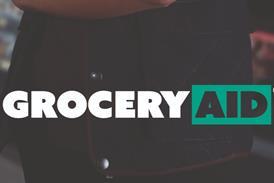





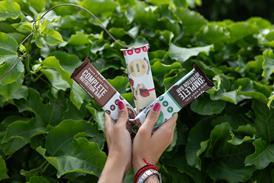

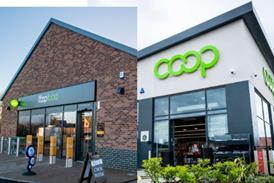
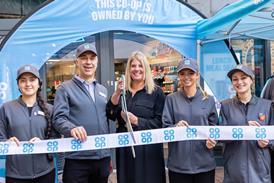






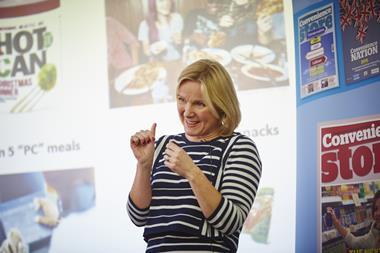

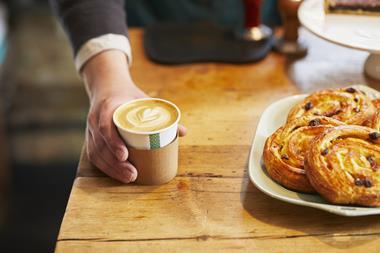
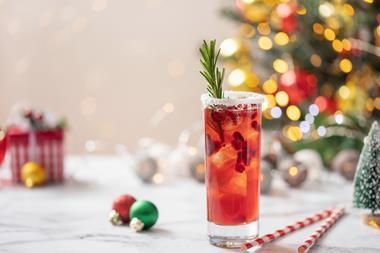



No comments yet